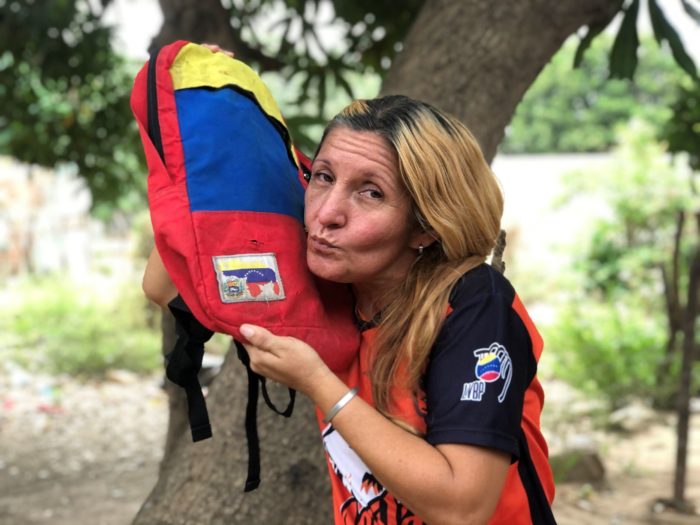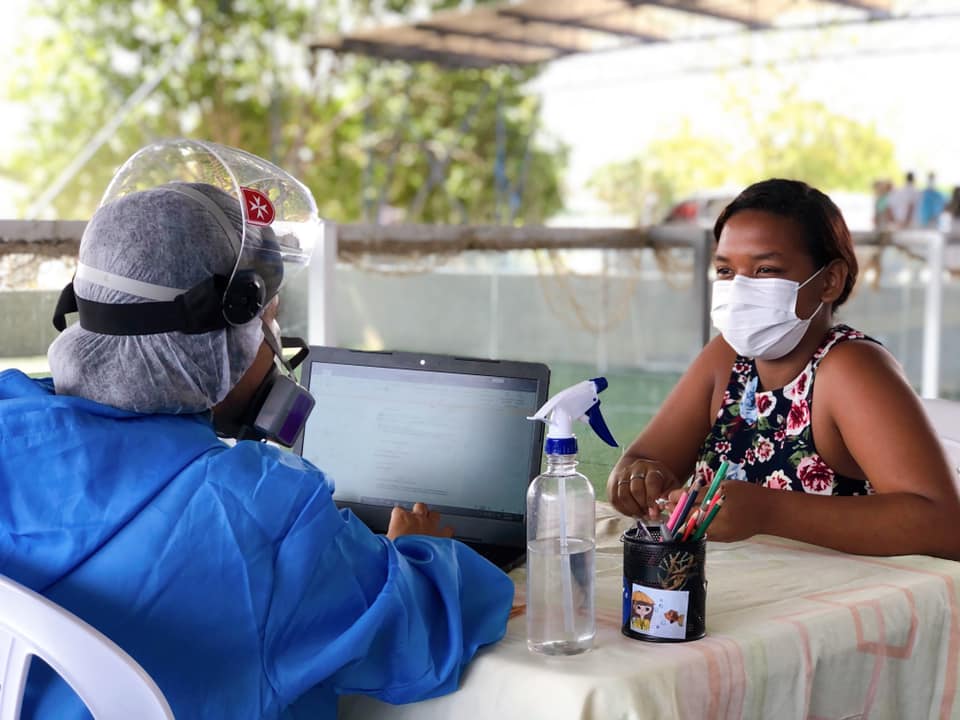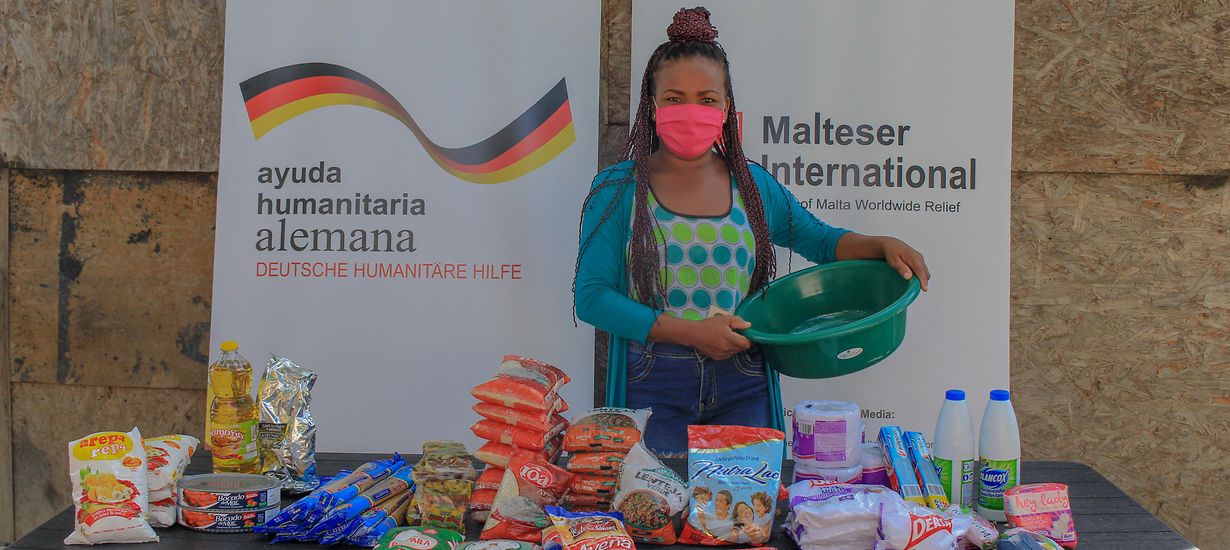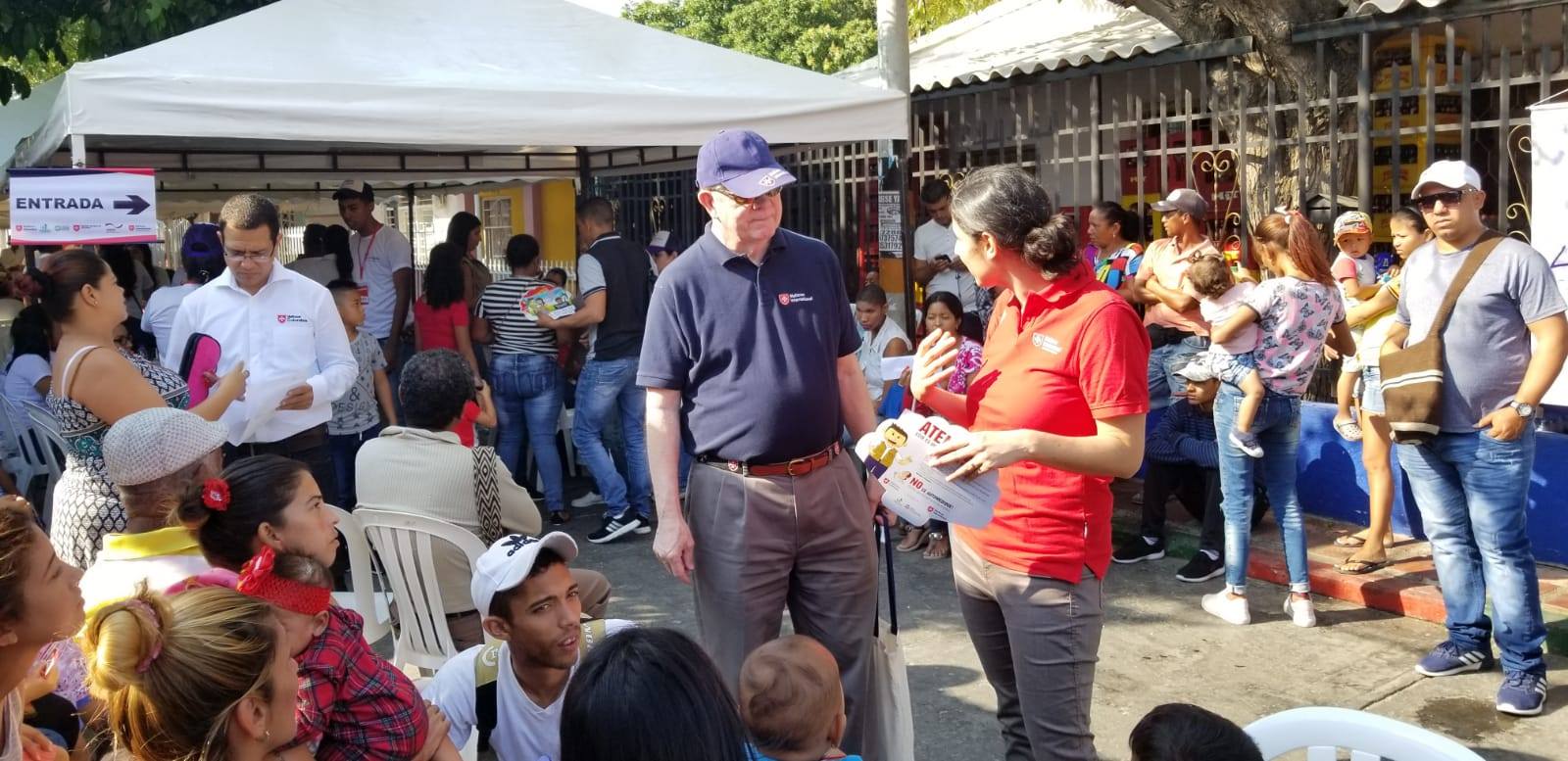South America
Lianett’s Story: From Circus Performer to Health Advocate
A Circus Soul who Migrated to Colombia
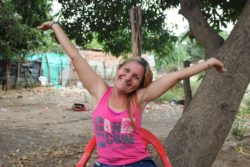 Lianett Castellano Ferrero learned to see life in different shades and colors. Art and creativity are in her blood which is how she became a recognized circus performer in Venezuela. Due to her unsustainable economic situation, however, she made the decision to look for new opportunities two years ago. The curtains came down on the circus where she worked, with no prospect of opening again. Gone were the days of tents, stages, seats, and applause. Lianett decided to migrate to Colombia.
Lianett Castellano Ferrero learned to see life in different shades and colors. Art and creativity are in her blood which is how she became a recognized circus performer in Venezuela. Due to her unsustainable economic situation, however, she made the decision to look for new opportunities two years ago. The curtains came down on the circus where she worked, with no prospect of opening again. Gone were the days of tents, stages, seats, and applause. Lianett decided to migrate to Colombia.
Along with her younger brother, she ventured across one of the clandestine trails in La Raya, a well-known area for illegal border crossings near the town of Paraguachón, along the Venezuela-Colombia border. Since there is no safe route or transportation, the road is extremely dangerous and must be traveled by foot or pick-up truck, sharing seats in the back of the vehicle with 20 other people including youth, children, and seniors.
That evening, an irregular armed group operating in the area robbed them in the middle of the road and stole their belongings. “I thought it was our end,” she says.
They arrived in Riohacha, where their other siblings and part of their family already lived. “Some Colombians think that we came here to take away their jobs or source of income, when in reality we are here barely surviving,” says Lianett, referring to the fact that she left her life in Venezuela, her house that she built with so much effort with her three jobs. In the morning she was a preschool assistant, in the evenings, a nursing assistant and, on weekends, she would work at a fast-food stall.
Then Everything Changed
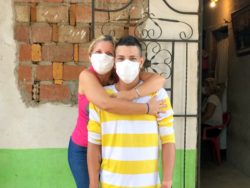 One way to survive and gather for day-to-day livelihood was to sell tinto – small coffee with brown sugar – on the streets of Riohacha, but since the pandemic began in 2020, people stopped buying tintos for fear of possible COVID-19 contagion.
One way to survive and gather for day-to-day livelihood was to sell tinto – small coffee with brown sugar – on the streets of Riohacha, but since the pandemic began in 2020, people stopped buying tintos for fear of possible COVID-19 contagion.
The nine family members with whom Lianett currently lives can barely manage to gather enough money for rent. When they are late with payments, the owner of the house threatens to evict them. Her 21-year-old son earns some money as a motorcycle driver in the city. “There are hard days, we have been hungry, but I always tell my family that we have to get ahead,” she says in a broken voice.
Despite these challenges, and the added stressor of xenophobia which she has experienced, Lianett became involved in the community where she currently resides. She has overcome her fears and responds with humor each time she is dismissively called “veneca” (a pejorative word for Venzuelans).
Today she is one of the leaders of the San Judas neighborhood, a highly vulnerable sector of the city which has a limited supply of basic services, such as drinking water, electricity and basic sanitation which negatively affect the quality of life of its inhabitants. Additionally, they lack food and face multiple barriers in accessing health services in Colombia.
Nonetheless, she and other neighborhood leaders have come together to knock on doors and ask for help for the people most in-need in the neighborhood. “It breaks my heart when they come to my house asking me for a pound of rice because they don’t have enough to eat,” she says.
Hands On
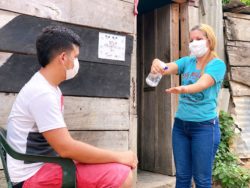 In mid-February 2021, a friend told her that her leadership in the community met the profile for a project that was seeking participants in La Guajira. That project was MI Americas’ “Reducing Gaps in the Health of Venezuelan refugees and migrants, with a focus on Multi-ethnic host communities“, a partnership with the International Organization for Migration (IOM) in Colombia, and funded by the U.S. State Department’s Bureau of Population, Refugees, and Migration (PRM).
In mid-February 2021, a friend told her that her leadership in the community met the profile for a project that was seeking participants in La Guajira. That project was MI Americas’ “Reducing Gaps in the Health of Venezuelan refugees and migrants, with a focus on Multi-ethnic host communities“, a partnership with the International Organization for Migration (IOM) in Colombia, and funded by the U.S. State Department’s Bureau of Population, Refugees, and Migration (PRM).
Lianett was invited to join the humanitarian project along with her fellow neighborhood community leaders. She enthusiastically participated in the activities, where she stood out for her leadership, communication skills, and interpersonal qualities. Eventually she became one of the project’s health promotion and awareness focal points.
Within the project, there are 30 leaders whose capabilities make them shining examples of resilience. Each one has a story to tell, adding to our understanding of one the most complex migratory phenomena in Latin America’s recent history. Today, as focal points, they participate in the processes of strengthening their community’s capacities to deal with general health and the prevention of communicable diseases.
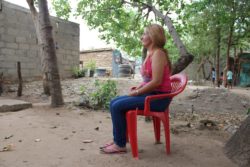 “I was unmotivated, I wanted something different to happen in my life,” recalls Lianett sitting in the backyard of her house, as she has always been a very enterprising woman, motivated to get ahead and help others. Covid-19 kept her at home for several months and stopped her from checking-in on her neighbors, as she was used to doing. There was fear on the streets.
“I was unmotivated, I wanted something different to happen in my life,” recalls Lianett sitting in the backyard of her house, as she has always been a very enterprising woman, motivated to get ahead and help others. Covid-19 kept her at home for several months and stopped her from checking-in on her neighbors, as she was used to doing. There was fear on the streets.
Through the trainings the MI Americas team provides, she is gaining valuable knowledge on topics such as prevention of communicable diseases, prevention of Covid-19 and supporting other Venezuela refugees, migrants, and Colombian returnees, who are not covered by the national health system. “I enjoy every training, because it reminds me of my time as a nursing assistant in Maracaibo and I can use this knowledge to help my people, my extended family that is from all over Venezuela, and who now live in this country,” he says.
The health and information focal points are members of the community, composed of migrants, returnees, and local Colombian residents, who help sensitize their family members and neighbors about the importance of good hygiene, prevention, and health promotion practices. This exercise motivates teamwork with medium- and long-term results in the community. Likewise, it also emphasizes the will and commitment of members of the community, regardless of their migratory status or nationality. “I wouldn’t miss this opportunity for the world, I feel that I contribute to bettering the living conditions of my compatriots and even for Colombians themselves who live in very difficult conditions,” says Lianett.
